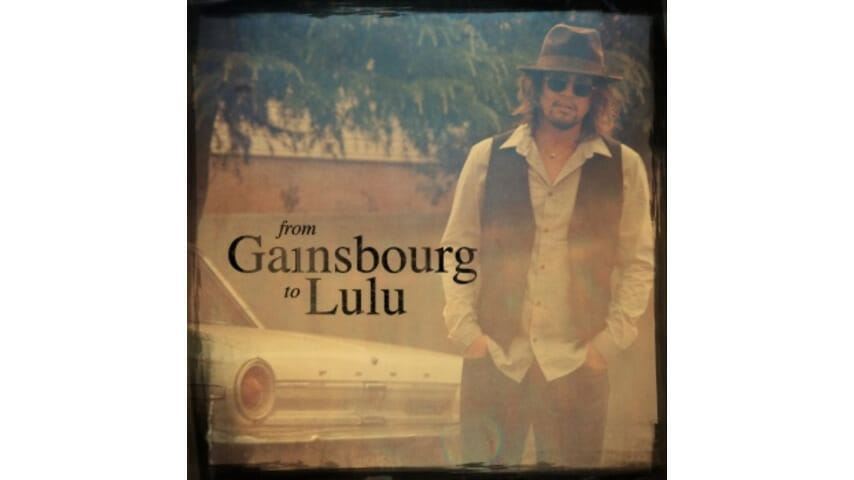Lulu Gainsbourg: From Gainsbourg to Lulu

Yé-yé is having a banner year, or at least the biggest year it’s probably had in a long time, in that at least a few dozen more people were introduced to the style of 1960s and ‘70s French pop piloted by songwriters like Serge Gainsbourg and the catchy, double entendre-packed numbers performed by young stars like Gainsbourg’s protégé, France Gall, through brief pop culture instances. As Megan Calvet-Draper, Jessica Paré introduced the men of Sterling Cooper Draper Pryce (and, by proxy, some American television viewers) to the genre with her earworm rendition of Gillian Hills’ “Zou Bisou Bisou” on Mad Men. One of the most memorable scenes in Wes Anderson’s Moonrise Kingdom features two runaway kids dancing frantically on a beach to Françoise Hardy’s “Le temps de l’amour.” So it’s as good of a time as any for the world to be reacquainted with one of the architects of the sound and so much more, Serge Gainsbourg, and making the introduction is his son, Lucien “Lulu” Gainsbourg, who has rerecorded some of his father’s best-known songs with the help of a cross-genre cast of characters.
When looking at a covers album, there’s always going to be the matter of weighing everything against the original, a task made all the more interesting here by the fact that this is a musician son paying tribute to his father. And based on the collection of musicians and other stars he’s assembled for this project—Iggy Pop! Marianne Faithfull! Johnny Depp—a whole lot of qualified people believe in it, too. And most of the entries are solid, on their own and in terms of Gainsbourg covers—Johnny Depp & Vanessa Paradis’ dark and stormy “Ballade De Melody Nelson”; a nimble “Le Poinçonneur Des Lilas” with Angelo Debarre—but as with any covers collection, not every selection is perfect.
-

-

-

-

-

-

-

-

-

-

-

-

-

-

-

-

-

-

-

-

-

-

-

-

-

-

-

-

-

-

-

-

-

-

-

-

-

-

-

-








































